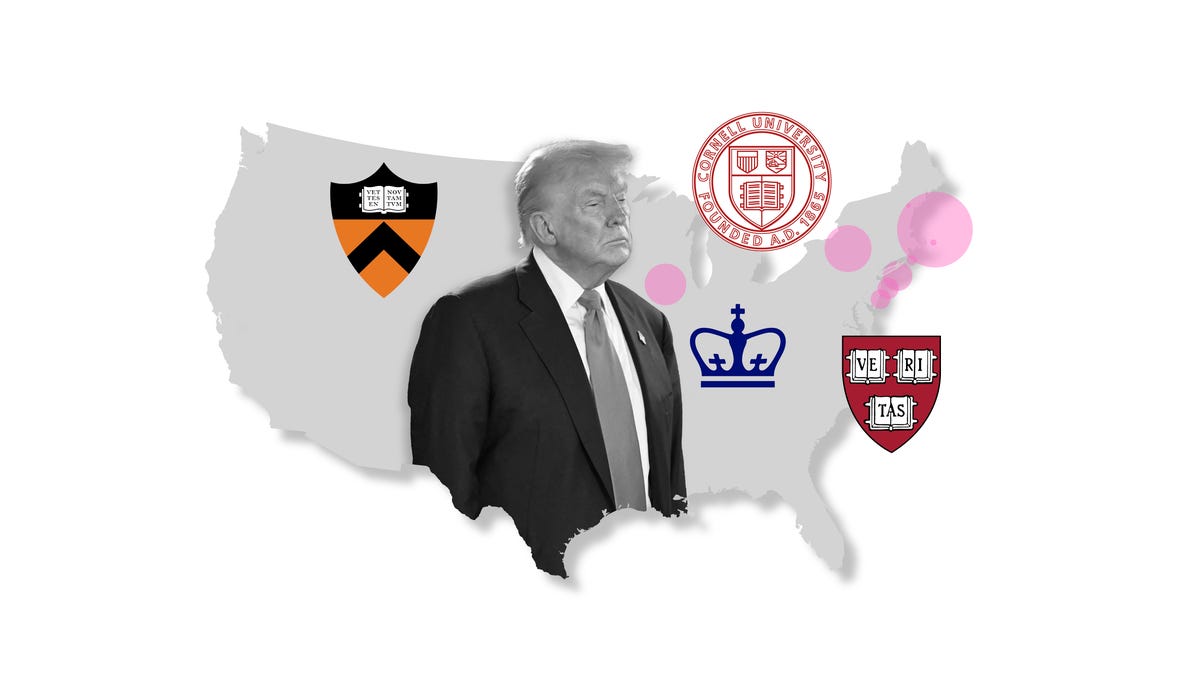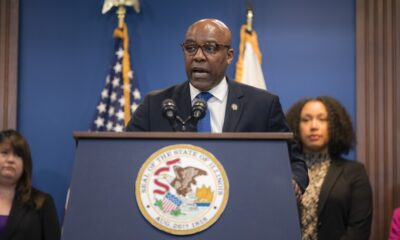Education
Columbia Settlement Sets Precedent for U.S. Universities

Columbia University has reached a settlement that aligns with demands from the administration of former President Donald Trump. This agreement could serve as a significant precedent for other universities across the United States, according to the U.S. Department of Education. The settlement has raised questions about how institutions of higher education will address issues related to free speech and campus policies moving forward.
The decision comes after a series of discussions between Columbia and the Trump administration, focusing on how universities manage student expression. The settlement includes provisions aimed at ensuring that students can freely express their views without fear of censorship or backlash. Observers note that this agreement could influence the policies of many colleges and universities nationwide.
Critics argue that the settlement may prioritize political agendas over academic freedom. Some educators worry that the emphasis on compliance with the Trump administration’s expectations could stifle genuine discourse on campuses. This concern highlights the ongoing debate about the balance between free speech and the need for a respectful academic environment.
Implications for Higher Education
Columbia’s agreement may prompt a wave of similar settlements at other institutions. The U.S. Department of Education has indicated that it will closely monitor how this settlement is implemented and may encourage other universities to adopt comparable measures. The potential for a national template raises questions about the future of campus policies regarding free expression.
In light of this development, universities are urged to review their policies on free speech and expression. Many institutions already have guidelines in place, but they may need to reassess their frameworks to align with the expectations set by this settlement. Such alignments could lead to significant changes in how universities approach controversial topics and campus events.
Supporters of the settlement argue that it reinforces the principle of free speech in academic settings. They contend that students should feel empowered to voice their opinions, even if those opinions are controversial. The agreement is viewed as a step toward creating an environment where diverse viewpoints can coexist.
Future Considerations
As this settlement unfolds, the broader implications for American higher education remain to be seen. Universities may face increased pressure to adopt similar policies, which could redefine their approach to student expression. This evolving landscape may also influence how future administrations address free speech on college campuses.
The Columbia settlement has ignited discussions about the role of universities in fostering open dialogue. With the potential for legislative changes and shifts in public opinion, universities must navigate a complex environment that balances free expression with the need for inclusivity and respect.
Overall, the Columbia University settlement marks a pivotal moment in the ongoing discourse surrounding free speech in higher education. As other institutions consider their own policies, the outcomes of this agreement may shape the future of academic freedom in the United States.
-

 Technology5 months ago
Technology5 months agoDiscover the Top 10 Calorie Counting Apps of 2025
-

 Technology3 weeks ago
Technology3 weeks agoOpenAI to Implement Age Verification for ChatGPT by December 2025
-

 Health3 months ago
Health3 months agoBella Hadid Shares Health Update After Treatment for Lyme Disease
-

 Health4 months ago
Health4 months agoAnalysts Project Stronger Growth for Apple’s iPhone 17 Lineup
-

 Health4 months ago
Health4 months agoErin Bates Shares Recovery Update Following Sepsis Complications
-

 Technology5 months ago
Technology5 months agoDiscover How to Reverse Image Search Using ChatGPT Effortlessly
-

 Technology3 months ago
Technology3 months agoElectric Moto Influencer Surronster Arrested in Tijuana
-

 Technology5 months ago
Technology5 months agoMeta Initiates $60B AI Data Center Expansion, Starting in Ohio
-

 Technology2 months ago
Technology2 months agoDiscover 2025’s Top GPUs for Exceptional 4K Gaming Performance
-

 Technology5 months ago
Technology5 months agoRecovering a Suspended TikTok Account: A Step-by-Step Guide
-

 Health5 months ago
Health5 months agoTested: Rab Firewall Mountain Jacket Survives Harsh Conditions
-

 Lifestyle5 months ago
Lifestyle5 months agoBelton Family Reunites After Daughter Survives Hill Country Floods




















